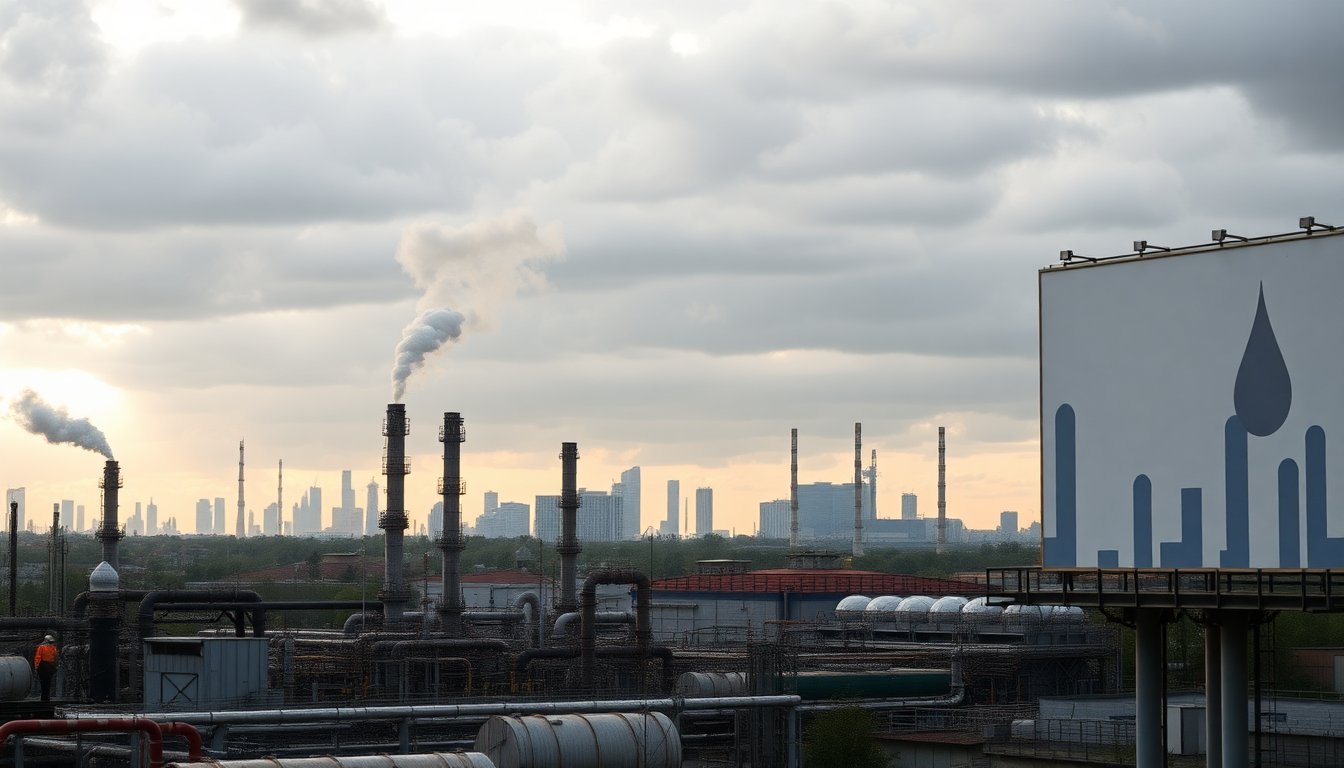Table of Contents
The decision by U.S. President Donald Trump to impose sanctions on major Russian oil companies has triggered a strong response from Moscow. The sanctions specifically target industry leaders such as Rosneft and Lukoil, creating significant concern within the Kremlin and among its allies. This action occurs against the backdrop of heightened tensions between Russia and the West, especially related to the ongoing situation in Ukraine.
Reactions from Kremlin officials
In response to the sanctions, Russian officials have sought to minimize their potential impact. Maria Zakharova, the spokesperson for the foreign ministry and a key figure in Kremlin communications, dismissed the sanctions as inconsequential. She asserted that Russia has developed a strong economic immunity against Western restrictions, claiming, “We won’t face any particular difficulties.”
This sentiment of resilience was echoed by former President Dmitry Medvedev. He characterized the U.S. actions as a declaration of war against Russia, stating that the conflict is now Trump’s responsibility. Medvedev highlighted the adversarial nature of the U.S.-Russia relationship, suggesting that the White House’s claims of peace are merely a facade.
Continued diplomatic engagement
Despite recent provocative statements, Maria Zakharova emphasized that Russia remains willing to engage in dialogue with the United States. This follows a phone call between former President Donald Trump and President Vladimir Putin on October 16, which suggested the possibility of a peace summit in Budapest. The focus of this summit would be to promote a ceasefire in Ukraine. However, senior Russian officials have expressed skepticism regarding any talks of a truce, instead insisting on the need to address the core issues that ignited the conflict, including the removal of Ukrainian President Volodymyr Zelenskyy from office.
Western reactions and Ukrainian stance
Ukrainian President Volodymyr Zelenskyy has indicated his willingness to join the proposed summit with Donald Trump and Vladimir Putin. He stated that his primary objective is to achieve a just peace rather than a rushed agreement. Zelenskyy also criticized the selection of Hungary as the venue, expressing concerns that Prime Minister Viktor Orban’s ties to the Kremlin may not align with Ukrainian interests.
The implications of U.S. support
As discussions progress, the evolving U.S. position on supporting Ukraine raises concerns about the nation’s future. Reports indicate that Zelenskyy faced pressure to yield to Russian demands during a recent meeting with Trump. This situation has created urgency among European allies, who are striving to strengthen Ukraine’s position prior to any negotiations with Russia.
Sanctions and the European Union’s financial aid
European leaders are exploring the possibility of utilizing Russian frozen assets to provide significant financial assistance to Ukraine amid its ongoing conflict. The European Commission is developing a legal framework that could potentially release up to €140 billion from assets that have been immobilized since the onset of the invasion. Belgium has expressed readiness to collaborate on this initiative, marking a vital opportunity for Ukraine as it confronts a severe budget deficit.
Frozen assets held primarily by the financial institution Euroclear may provide funding for Ukraine’s war efforts in the coming years. The European Commission believes it can devise a legally sound plan to sidestep accusations of confiscation. This plan suggests that Russia could recover these assets if it pays reparations after the conflict concludes. However, this proposal faces significant legal hurdles and will necessitate extensive negotiations among EU member states.
Geopolitical tensions continue to shape international relations
The geopolitical landscape remains fraught with tension as Moscow navigates the fallout from U.S. sanctions while maintaining a facade of resilience. Ongoing discussions about a potential peace summit and European financial assistance indicate that the situation is evolving. This highlights the complex web of international relations at play. As both sides prepare for future negotiations, the implications of these developments will be crucial for the trajectory of the conflict and the stability of the region.


